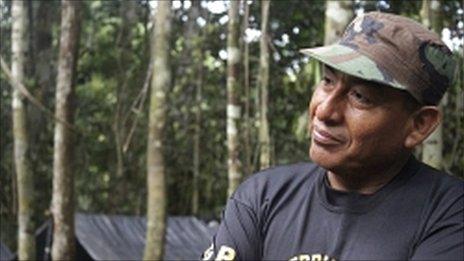Peru admits Shining Path rebels have not been 'exterminated'
- Published
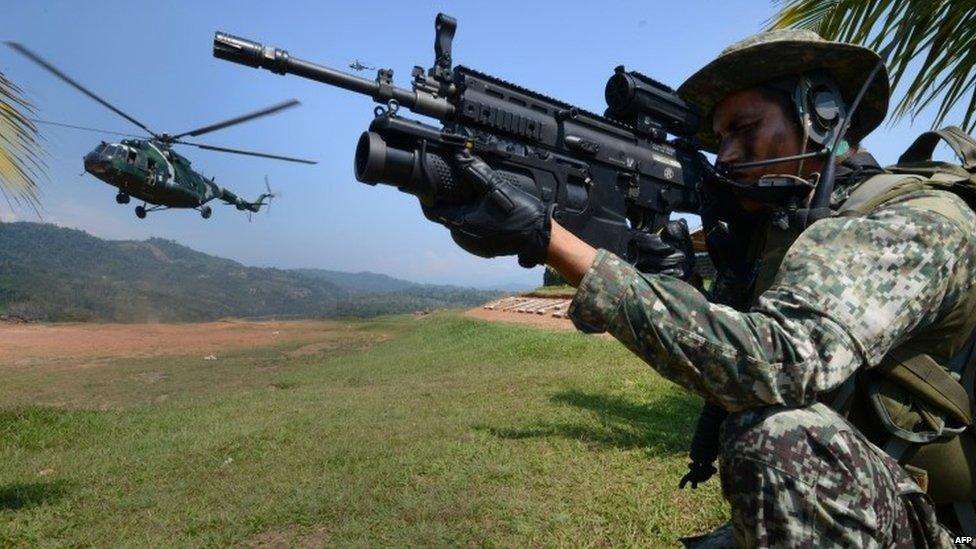
The Peruvian army has launched several operations against the left-wing rebels over the past weeks
The Peruvian government has admitted that the Shining Path Maoist rebel group is still in existence.
"We cannot say this terrorist group has been exterminated," said Defence Minister Jakke Valakivi. "It is much weakened, of course, but it continues to operate."
Counter-terror chief Jose Baella said the left-wing rebels still have some 350 members, and 80 fighters.
Shining Path guerillas waged a bloody insurgency in Peru from 1980.
When the then-leader, known as Comrade Artemio, was captured in 2012, President Ollanta Humala declared the army's mission against the Shining Path accomplished.
'Slaves'
Last week, the Peruvian army rescued 39 people, mostly children, from a farm where the rebels kept them as slave workers.
Some of the children had been born in the camp, and were fathered by rebels.
One woman told reporters they had been living and working there for 30 years.
The camp is in the Apurimac-Ene and Mantaro River Valley, an area known by its Spanish language acronym, Vraem.
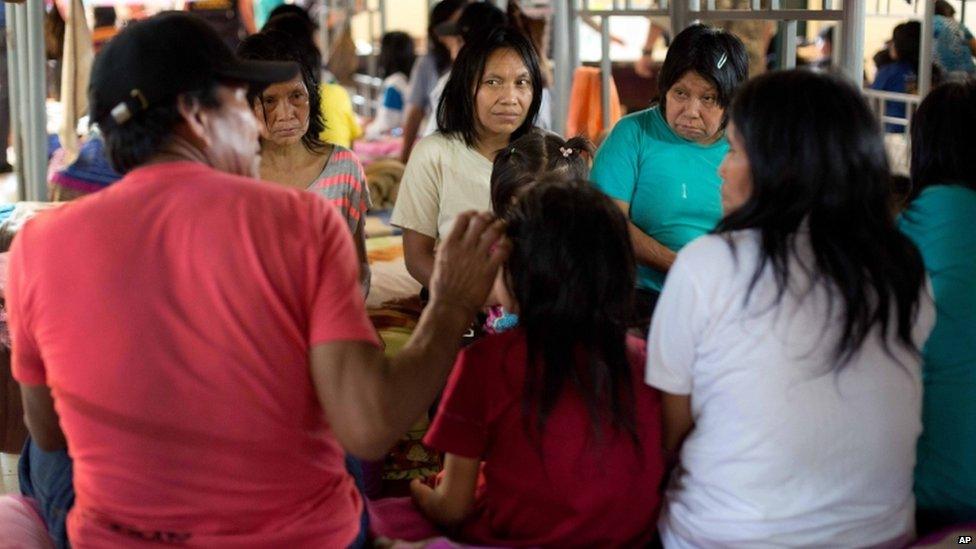
Some of the women rescued last week said they had been in the work camp for as long as 30 years
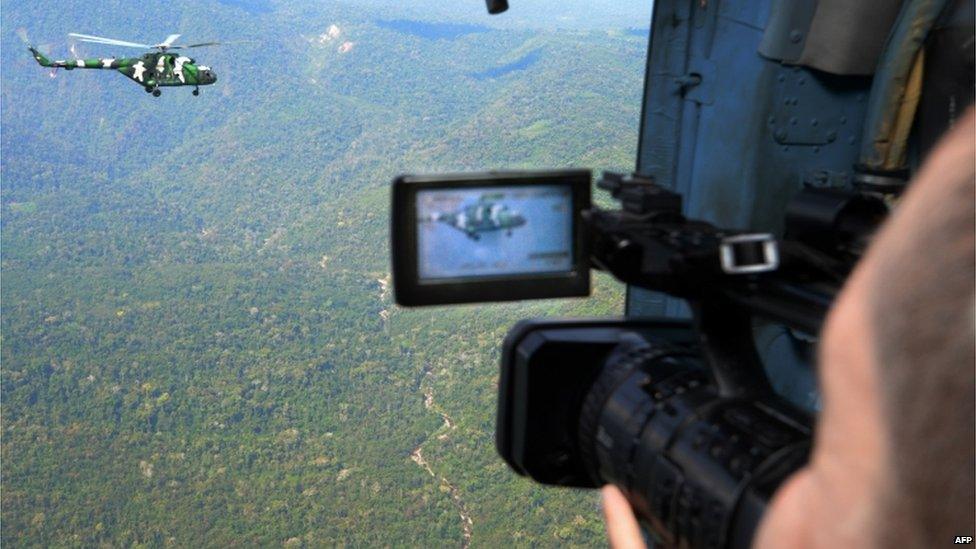
The rebels operate in the dense jungle area known as Vraem
'Indicted in US'
The biggest blow to the Shining Path, or Sendero Luminoso, took place in 1992, with the arrest of its founder, Abimael Guzman.
Almost 70,000 people had died or disappeared in more than a decade of internal conflict.
The rebels then dispersed into small bands, who got more involved in drug trafficking.
The main faction was led by Florindo Eleuterio Flores, alias Comrade Artemio, who was arrested in February 2012.
The group is now led by the brothers Victor and Jorge Quispe Palomino, who have been indicted in the United States for drug trafficking offences.
- Published28 July 2015
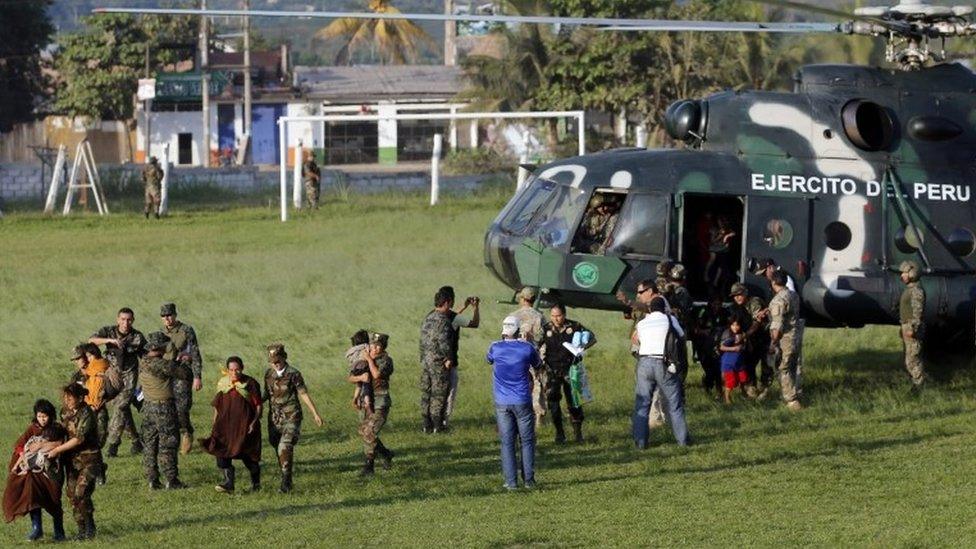
- Published10 April 2014
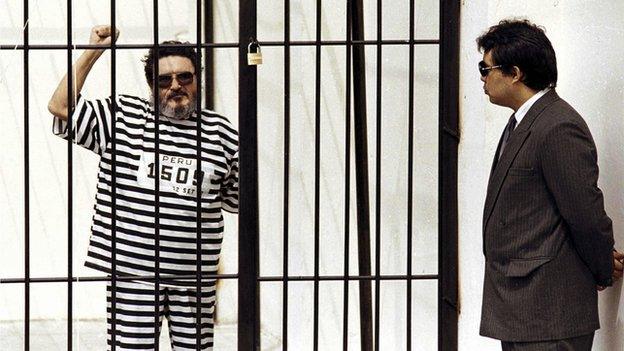
- Published24 September 2013
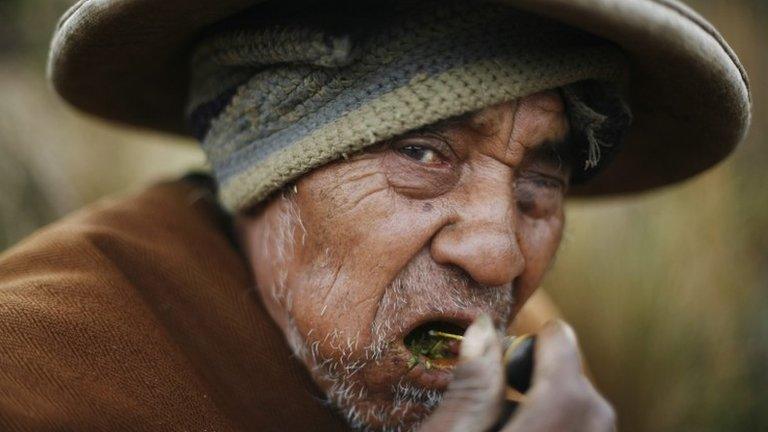
- Published13 February 2012
